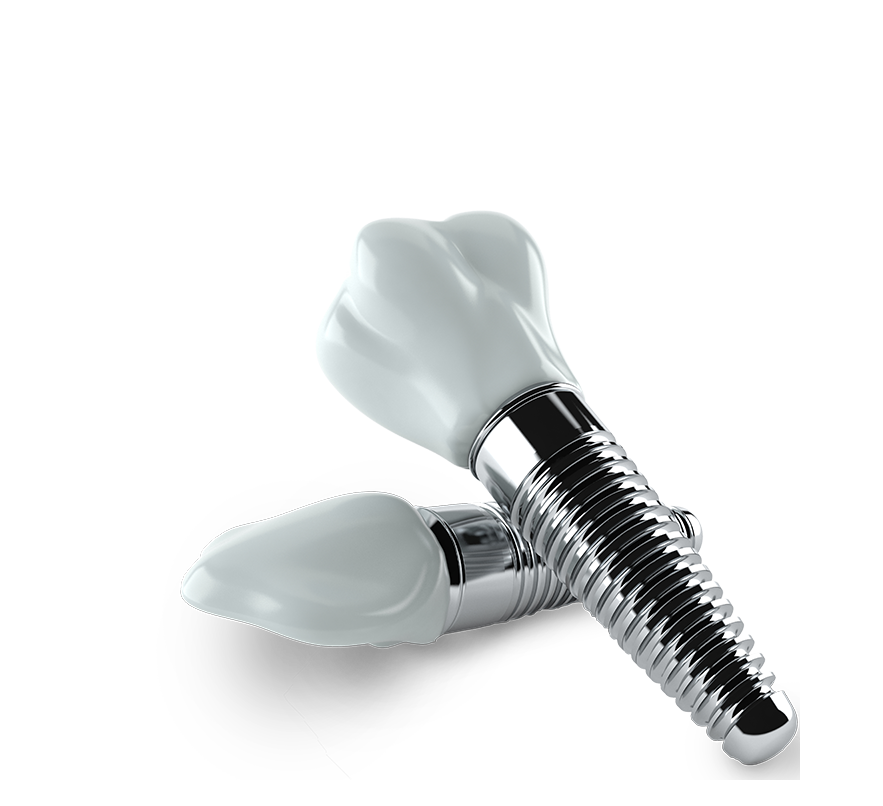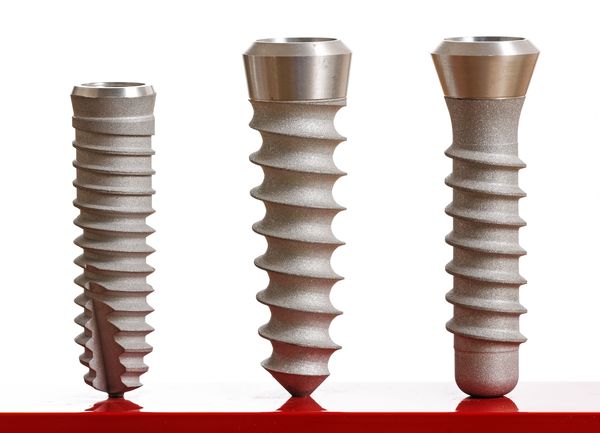
Dental Implants
Missing teeth can have a serious impact on the comfort, function, and appearance of your smile.
Dr. Julie Liberman coordinates with local surgeons for the placement and restoration of dental implants to treat missing or damaged teeth.
So why should you consider dental implants?
The Advantages of Implants over Traditional Restorations
Achieve Greater Stability
Because implants actually fuse with the jaw, patients do not have to worry about their restorations slipping while they eat or speak. This also prevents implant-supported dentures from wearing down the gums over time, which can lead to other health problems.Preserve Natural Teeth
In order to attach a traditional bridge, Dr. Liberman will need to remove small amounts of enamel from the adjacent teeth. By avoiding this step of the process, implants can keep neighboring teeth strong and healthy.Maintain Bone Health
One of the most important benefits of implants is their ability to reverse jawbone deterioration. Nutrients are redirected away from the jaw after we lose teeth, weakening the bone and causing other oral health problems. By acting as a tooth root, an implant can allow the jawbone to rebuild itself.Long-Lasting Results
With proper care, implants can last for decades. Despite these benefits, implant-supported restorations are not ideal for every patient. Because they require surgery to place, implants are generally more expensive than other options and involve a much lengthier treatment timeline.Watch how dental implants are placed...
Because of their benefits, dental implants have become very popular...
Millions of Patients Enjoy the Benefits of Dental Implants
However, not every patient will qualify for dental implants...
Factors That Affect Dental Implant Candidacy
Low Jawbone Density
There must be sufficient remaining jawbone tissue to support dental implants. Otherwise, you may need to undergo bone grafting to restore your candidacy.Periodontal Disease
Gum tissue affected by periodontal disease can have an impact on your overall oral health. It is important that periodontal disease is treated before receiving dental implants.Smoking
Smoking can inhibit your ability to heal properly. As such, you should be committed to quitting smoking throughout the entire treatment and healing process. We encourage patients to quit for good.Uncontrolled Diabetes
Diabetes can affect the healing process, increasing your risk of complications. As such, it is important that your diabetes is under control.Are dental implants safe?
Most Patients Achieve Successful Outcomes

Dental implants are made of biocompatible materials that will fuse with your jawbone. Additionally, many patients enjoy reliable restoration with dental implants. Recent studies have found that there is a 90 to 95 percent success rate for dental implants after 10 years.
To help minimize your risk of complications, the doctor will conduct a comprehensive examination to determine your candidacy and identify any potential risks. She will also provide you with post-operative instructions and monitor your healing to help you achieve a successful recovery.
How does a dental implant work?
The Basics of Dental Implants
Dental implants are considered the most reliable option for replacing missing teeth. Unlike traditional dental bridges, which are secured by neighboring teeth, or dentures, which simply rest on top of the gums, implant-supported restorations are anchored directly in the jaw. These posts both act as artificial dental roots and stabilize your restoration, or visible portion of the artificial tooth or teeth. Depending on how many teeth need to be replaced, Dr. Liberman may recommend a single crown, bridge, partial denture, or full denture.
Implants are embedded directly in the jaw, which creates an incredibly stable foundation.
Why Choose Implants
Understanding Candidacy
In order to qualify for treatment, patients need a sufficient amount of bone tissue to support the implants. Unfortunately, because missing teeth often lead to weaker jawbones, many people who would otherwise benefit from implants lack the necessary tissue. To address this problem, Dr. Liberman can perform a bone graft. This minor surgical procedure can stimulate new bone growth and potentially improve a patient’s candidacy.
Dental implants not only replace broken or missing teeth, but help to lay the foundation for a stronger jawbone.
Patients who are interested in implants must also be in generally good health. Smoking or systemic conditions such as diabetes can undermine your ability to heal after surgery and can potentially complicate your results.
Breaking Down the Treatment Timeline
While the exact timeline can vary significantly from patient to patient, placing and restoring dental implants may take anywhere from four months to a full year or more. The process is usually broken down into several stages:
Consultation
Patients must first meet with Dr. Liberman to evaluate their candidacy for implants and ensure they fully understand the requirements for treatment. She will review your dental history, ask about your treatment goals, and conduct a thorough examination of your smile. If implants seem like an appropriate solution, she will take x-rays and gather measurements in order to help formulate a precise surgical guide. If you are considering multiple implants, she may also provide a diagnostic wax-up to refine your treatment plan.
Preparatory Procedures
Patients often require one of two preparatory treatments: extractions to remove badly damaged teeth and bone grafting to strengthen the jaw. While she may refer patients out to oral surgeons for more complicated cases, Dr. Liberman can typically perform these procedures at her office. In some cases, Dr. Liberman may coordinate care so that the implants are placed immediately after an extraction or graft. Otherwise, healing may take up to several months before treatment can proceed.
Placement and Restoration
The remainder of treatment is broken up into two main portions: implant placement and implant restoration. Dr. Liberman coordinates with a local oral surgeon and can provide a referral for your implant placement.
During your appointment, you will receive a local anesthetic to numb the area and in some cases, sedation, to ensure that you remain comfortable. Based on the measurements from Dr. Liberman, the surgeon will then make an incision in the gums and create a hole in the jawbone in which to place the implant. Once the implant is secured within the bone, the surgeon will suture the incision closed.
While Dr. Liberman may provide a temporary restoration, she will often wait at least several months before attaching permanent restorations. This helps ensure that the implant is fully integrated into the jawbone, providing as stable a base as possible for your artificial tooth.
Rebuild Your Smile
Dental implants not only replace broken or missing teeth, but help to lay the foundation for optimal oral health for years to come. Contact us online or at (516) 482-9140 to schedule a consultation with Dr. Liberman and learn whether implants are right for you.
Contact Us
Never been happier with a dentist before! The professionalism, individual care, sparkling clean office, and the range of services are amazing. Highly recommended!



